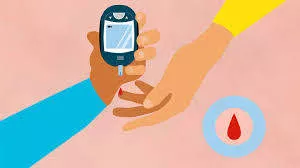In today’s fast-paced world, stress has become a ubiquitous part of daily life for many individuals. Alongside the hustle and bustle of modern living, concerns about health and well-being often arise, including the impact of stress on physiological functions such as blood sugar regulation. This article delves into the intricate relationship between stress and hypoglycemia, shedding light on the potential connections, symptoms, risk factors, and management strategies for navigating these challenges effectively.
Defining Hypoglycemia And Stress
Hypoglycemia, commonly known as low blood sugar, occurs when blood glucose levels drop below normal levels, typically defined as below 70 milligrams per deciliter (mg/dL). This condition can manifest in various symptoms, ranging from mild to severe, and requires prompt attention to prevent complications.
Stress is the body’s response to perceived threats or challenges, triggering a cascade of physiological and psychological reactions. When faced with stressors, the body releases hormones such as cortisol and adrenaline, priming it for action and enhancing alertness and energy levels.
Impact of Stress on Blood Sugar Levels:
The physiological response to stress plays a significant role in glucose metabolism. Cortisol, often referred to as the “stress hormone,” increases the availability of glucose in the bloodstream by stimulating gluconeogenesis, the process by which the liver produces glucose from non-carbohydrate sources. Additionally, adrenaline, also known as epinephrine, promotes the breakdown of glycogen stored in the liver and muscles, releasing glucose into the bloodstream for immediate energy.
Research suggests a potential link between stress and hypoglycemia, particularly in individuals predisposed to fluctuations in blood sugar levels. Chronic stress or acute stressors can disrupt the delicate balance of glucose regulation, leading to episodes of hypoglycemia in susceptible individuals.
Symptoms of Hypoglycemia
Recognizing the symptoms of hypoglycemia is crucial for prompt intervention and management. Common symptoms include trembling, sweating, palpitations, confusion, dizziness, weakness, hunger, and irritability. Stress can exacerbate these symptoms, making them more pronounced and challenging to manage.
Managing blood sugar levels during times of stress requires a multifaceted approach. Incorporating healthy dietary habits, regular physical activity, adequate sleep, stress-reduction techniques such as meditation or deep breathing exercises, and medication adherence for individuals with diabetes are essential components of effective management. Monitoring blood sugar levels regularly and adjusting treatment plans as needed can help mitigate the impact of stress on glucose metabolism.
Preventive Measures
Preventing hypoglycemia during times of stress involves proactive measures to support overall health and well-being. This includes maintaining a balanced diet rich in complex carbohydrates, proteins, and healthy fats, staying hydrated, prioritizing adequate sleep and relaxation, and seeking support from healthcare professionals for diabetes management. Engaging in regular physical activity and adopting stress-management techniques can also help build resilience and mitigate the impact of stress on blood sugar levels.
It is vital to seek medical attention if experiencing symptoms of hypoglycemia, especially in the context of stress. Persistent or severe symptoms may indicate a medical emergency requiring immediate intervention. Additionally, individuals with diabetes should consult healthcare professionals for personalized guidance on managing blood sugar levels during stressful periods.
Conclusion
The relationship between stress and hypoglycemia underscores the importance of holistic approaches to health and well-being. By understanding the mechanisms through which stress influences blood sugar levels and implementing proactive management strategies, individuals can better navigate the challenges posed by stress while safeguarding their metabolic health. It is essential to prioritize self-care, seek appropriate medical attention when needed, and engage in preventive measures to promote optimal glucose regulation and overall well-being. Remember, consultation with healthcare professionals is key to personalized advice and guidance tailored to individual needs.
Related topics:
Do You Know The Signs of Excessive Sugar Consumption?
What Do People With Untreated Type 1 Diabetes Feel Like?
Do You Know How To Lower Blood Sugar Immediately?
























